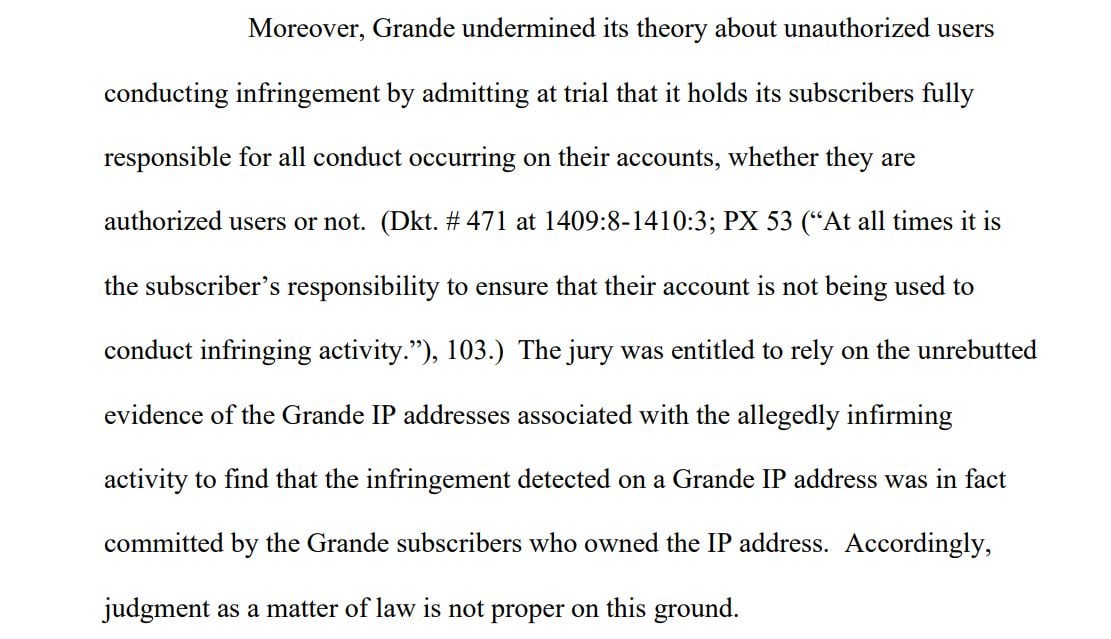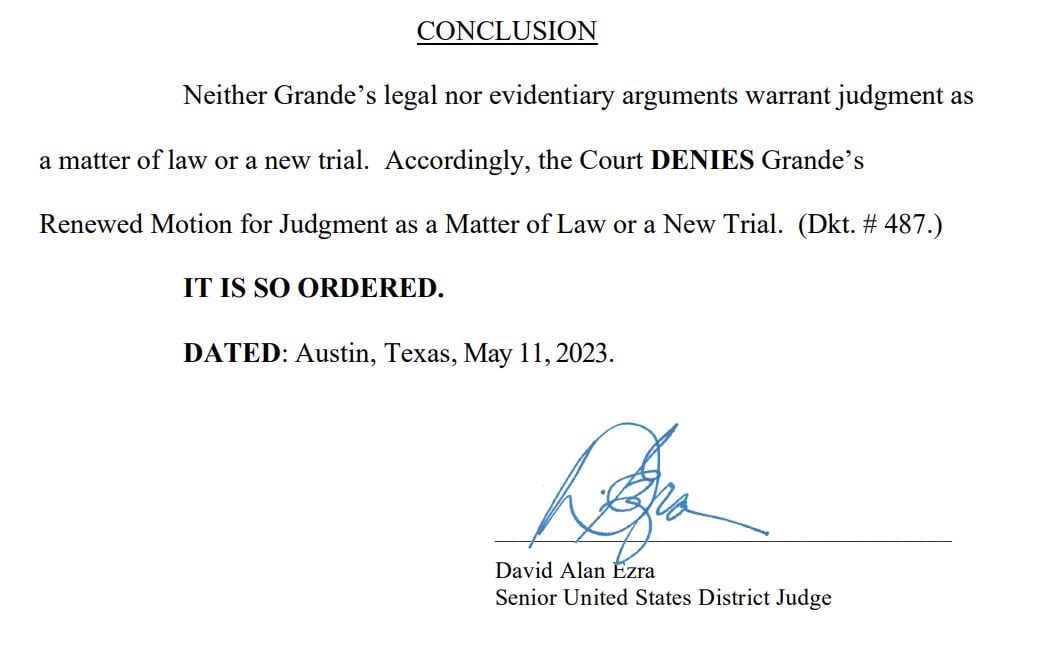 Last fall, a Texas federal jury found Grande Communications liable for willful contributory copyright infringement and ordered the ISP to pay $47 million in damages to a group of record labels.
Last fall, a Texas federal jury found Grande Communications liable for willful contributory copyright infringement and ordered the ISP to pay $47 million in damages to a group of record labels.
District Court Judge David Ezra confirmed the judgment in January. This was a clear mistake, according to Grande, which hoped to have it overturned.
ISP Wants a Do-Over
In March, the Internet provider filed a renewed motion for judgment as a matter of law. Put simply, Grande wanted the Judge to overrule the jury. This is warranted if the evidence clearly weighs in favor of the requesting party but when a jury finds otherwise.
If that is not an option, the ISP asked the court for a new trial to allow the piracy liability issues to be raised again before a new jury.
Yesterday, U.S. District Court Judge David Ezra ruled on the motion, denying both requests. According to the order, there is nothing wrong with the jury verdict and the court didn’t make any clear errors either.
Request Denied
To make its case, the ISP raised a wide variety of issues, including the argument that there was a lack of copyright infringement evidence at trial.
For example, there were no copies of the 1,403 original copyrighted works to compare against the allegedly pirated music tracks. In addition, it was unclear if the infringers were actually Grande subscribers, instead of unauthorized network users such as wifi-stealing neighbors.
Judge Ezra sees things differently. In his order, he writes that the evidence included a hard drive of download files and detailed testimony showing that the downloads matched the copyrighted sound recordings.
Self-Undermining Admission
The notion that strangers could have used Grande subscribers’ connections didn’t make an impact either. According to the order, Grande itself argued at trial that subscribers are liable for everything that takes place through their connection.
“Grande undermined its theory about unauthorized users conducting infringement by admitting at trial that it holds its subscribers fully responsible for all conduct occurring on their accounts, whether they are authorized users or not,” Judge Ezra writes.

The ISP also argued that the evidence failed to show that Grande users actually uploaded the pirated tracks to others. Again, the court found the argument unconvincing.
Judge Ezra stresses that “actual dissemination” of pirated content is not required to prove direct infringement on a distribution theory; showing that it was “made available” suffices.
Sufficient ‘Distribution’ Evidence
In this case, the court believes that there was sufficient direct and circumstantial evidence that Grande users uploaded pirated content. Part of this evidence comes from the music company’s piracy-tracking partner Rightscorp.
“Plaintiffs provided evidence of actual uploads by Grande users, and downloads by Rightscorp: Rightscorp reapproached Grande users who had previously offered the work for copying and downloaded at least one complete copy of the work,” Judge Ezra writes.
All in all, the court concludes that Grande fails to make a proper case for a new judgment or trial.
“Neither Grande’s legal nor evidentiary arguments warrant judgment as a matter of law or a new trial. Accordingly, the Court DENIES Grande’s Renewed Motion for Judgment as a Matter of Law or a New Trial,” the final order reads.

Appeal Forthcoming
This effectively means that the $47 million music piracy verdict stands. However, this still isn’t the end of the legal dispute, as there are more options to challenge the outcome.
The ISP previously indicated it would appeal the jury verdict at the United States Court of Appeals for the Fifth Circuit if its motion was denied. We therefore expect an appeal to be filed in the near future.
Grande hasn’t been able to catch a break in court recently. In addition to the multi-million dollar verdict and this week’s rejection, its motion to dismiss in a separate piracy liability lawsuit against filmmakers was also denied.
—
A copy of U.S. District Court Judge David Ezra’s order denying Grande’s renewed motion for judgment as a matter of law or a new trial, is available here (pdf)
From: TF, for the latest news on copyright battles, piracy and more.
Powered by WPeMatico
